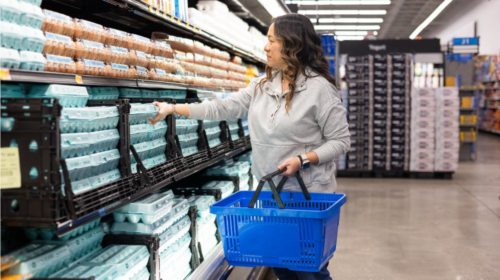Why vegetable growers are using reusable plastic pallets: Top 5 benefits
under Supply chain efficiency

In this article
Growers deal with a lot in providing the freshest and safest products for customers. From increasingly frequent headlines about cross-contamination to concerns about hygiene, quality control, operational efficiency, environmental impact and cost reduction, the challenge is becoming more and more complicated. One technology that can help address all these urgent needs, fortunately, is the durable, reusable plastic pallet. At a price comparable to wood, it can make a powerful difference. But there is a lot more to the opportunity than just pallet cost. Here are the top five benefits of switching to reusable plastic pallets.
Reusable plastic pallets are clean
Plastic pallets provide a hygienic and safe solution for the shipment of fresh produce and other perishables. Typically, unwashed wood pallets are shipped from grower to retailer, and then when emptied, are returned to any one of several other trading partners, creating a passageway for pathogens. Unlike wood pallets, plastic does not absorb harmful contaminants and is resistant to the growth of mould. Leading plastic pallets are designed for ease of washing and drying, and thus help prevent cross-contamination. Plastic pallets also eliminate the hygiene and worker safety concerns associated with exposed nails and wood splinters.
Nestable plastic pallets reduce space requirements
When considering a switch to plastic pallets, it is important to specify a nestable design. For example, nestable plastic pallets from Tosca provide a 3:1 return ratio. They require only one-third the space of non-stackable pallets commonly used. The ability to nest plastic pallets fundamentally transforms reverse logistics, freeing up space for extra freight.
Improved storage efficiency is also appreciated for both internal and external storage areas, particularly during seasonal peaks when packaging and product inventory levels are at their highest. Nested pallets, stacked 40 high versus 15 wood pallets, also provide operational efficiency. Nested pallets are also more efficient to unload and move by forklift, with the operator being able to move triple the pallets and thereby reducing forklift traffic. Additionally, because empty pallets nest, they lock together, providing a safer, more secure load during handling.
They improve handling and operational efficiency
Engineered for the needs of today’s fresh produce supply chain, plastic pallets are designed to facilitate safety and efficiency. Weighing almost half as much as a standard wood pallet, a lightweight plastic pallet is easily lifted by a single material handler, and in transit, can reduce load weight by 338kg versus wood. Plastic pallets are consistent in weight, which supports accurate product weight capture. And because they are dimensionally accurate, functionality with material handling equipment is enhanced. Plastic pallets with a perimeter tray locking system make it easy for material handlers to locate trays on the pallet while preventing overhang. Data readiness is another important consideration. Polymer’s plastic pallets, for example, features an integral tag slot and is RFID, barcode and logo ready to support information capture and asset control.
They support circular economy aspirations
Long lasting plastic pallets can help fresh vegetable growers and their customers achieve waste reduction targets and sustainability aspirations. Because they last for years, they eliminate the ongoing generation of broken wood pallets, and at the end of their useful life, they can be fully recycled. Increasingly, plastic pallets can be manufactured from food grade post-consumer plastic, further reducing their environmental impact without compromising hygiene requirements. Lightweight, nestable pallets also help reduce mileage and fuel consumption, thus minimising carbon footprint.
Reusable plastic pallets offer superior value
Innovative, cost-saving and commercially viable, leading plastic pallets can make an important difference for growers and the fresh supply chain. When ROI is looked at through the lens of total value rather than simply pallet cost, the advantage clearly is with plastic. As outlined above, they provide a clean, space efficient, easy to handle and environmentally friendly alternative to the status quo – and the cost per use is competitive when compare to wood pallets.



















